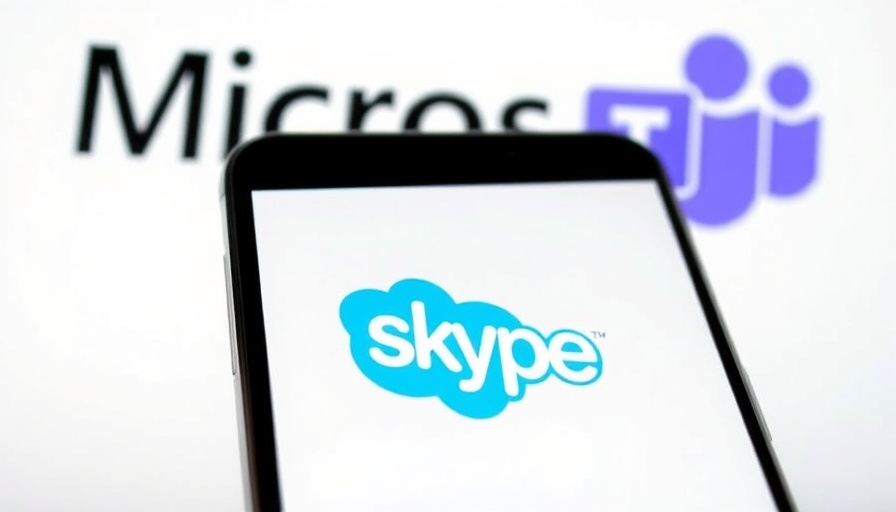
The End of an Era: Farewell to Skype
In the vast landscape of modern communication, the iconic Skype has officially made its exit. As of May 5, Microsoft has decided to retire the platform that initially revolutionized how we connect over long distances. For many, Skype was more than just a piece of software; it was a lifeline, a messenger of smiles and laughter shared across borders, and a necessary tool for both personal and professional connectivity.
Navigating Change in a Digital Landscape
In today’s fast-paced world, where platforms are constantly vying for our attention and loyalty, Skype’s retirement isn’t merely a step back. Rather, it’s a strategic pivot from Microsoft, which is now rallying its resources behind Microsoft Teams, a collaboration tool that has transformed how businesses function post-pandemic. Teams integrates chat, video meetings, file sharing, and project management into one seamless experience, catering perfectly to the needs of businesses scaling for future growth.
What Does This Mean for Users?
For the dedicated users, the decision brings a mixed bag of nostalgia and uncertainty. The community is buzzing with emotional reactions online, as many remember Skype as a dependable platform that bridged gaps between continents. Comments on social media echo sentiments of frustration; users fear that transitioning to new tools could impact their established ways of communicating, especially for those who are not tech-savvy.
However, Microsoft is providing avenues for these users to export their chat histories and transition using their Skype credentials to Teams, attempting to facilitate a smoother shift while minimizing disruption.
The Larger Context of Digital Evolution
The retirement of Skype is not an isolated event. Instead, it mirrors a larger trend in technology where software applications rise to prominence, only to be replaced by more efficient alternatives. Industries must adapt rapidly to remain competitive, especially in sectors like fintech and digital currency where innovative solutions are paramount. Other significant applications, including MSN Messenger, Internet Explorer, and Google Jamboard, have also succumbed to the fast-paced evolution of digital technology.
Lessons for Businesses in Transition
As we say goodbye to Skype, there’s a vital lesson for businesses navigating communications today: embracing change is key. For those in the B2B sphere, considering how emerging platforms can enhance operational infrastructure is crucial. Now more than ever, it’s important to explore the technology trends that can elevate your business’s communication and collaboration game.
Take Action for Future Success
The retirement of Skype serves as a reminder that what once served us best can become obsolete. Embrace newer technologies like Teams or explore tools tailored to your specific business needs to cultivate resilience in your operations. By adapting to these changes, you position your business to leverage the best in communication strategies, ultimately helping you scale operations and stay competitive.
In conclusion, while the digital landscape may be full of transformations, it’s essential to approach these shifts with an open mind and a willingness to adapt. Those who can pivot effectively will find themselves leading the pack in innovation and engagement in a world where technology continues to redefine communication.
 Add Row
Add Row  Add
Add 



Write A Comment